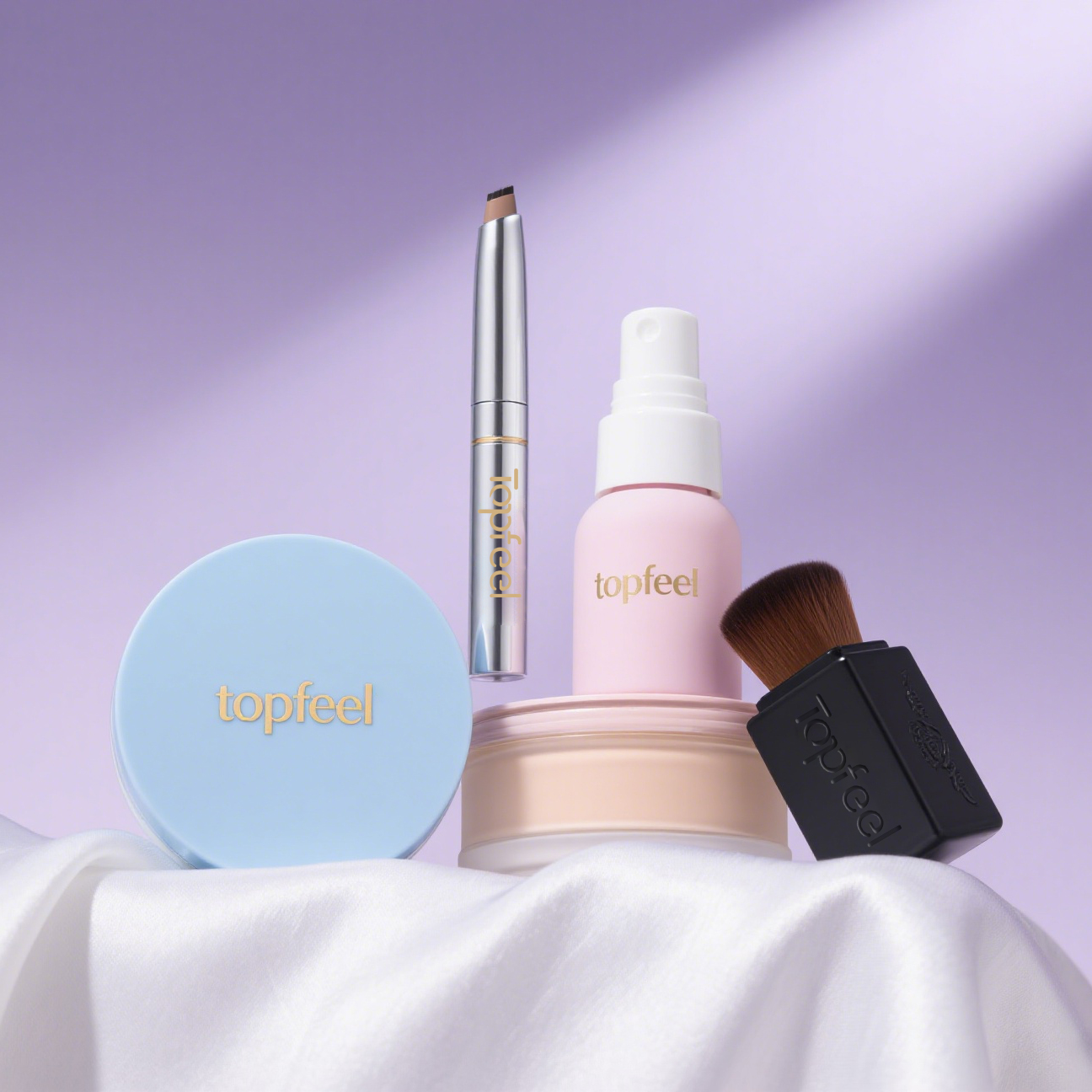How Private Label Makeup is Revolutionizing the Beauty Industry
Private label makeup refers to any product manufactured by one company but sold under another company’s brand. This provides a good opportunity for the beauty brands in offering a wide range of products without necessarily investing in production facilities. The brand can actually focus on marketing and distribution but still be able to promote quality products through experienced third-party manufacturers. The offering services of full-service solutions from product design to packaging by companies like the TOPFEEL Group offer brands a way to fit particular market demands.

THE ROLE OF MANUFACTURERS
The role of the manufacturer in the private-label makeup industry is very critical due to the fact that not all brands have the needed know-how or resources for certain products. They are generally full-service providers: offering formulation development, quality control, and packaging design services. With state-of-the-art laboratories and R&D personnel, manufacturers ensure global compliance with regulations and high quality. For example, OEM services from established companies offer the possibility for brands to outsource manufacturing for their needs of efficient production and innovation.
HOW DOES PRIVATE LABEL MAKEUP BENEFIT BRANDS?
Cost Efficiency and Flexibility
Among the major benefits that private label makeup provides are cost-effectiveness. Because the production is contracted to specialized producers, brands can cut their overhead substantially. This model saves big on investment in production facilities and equipment, thus enabling brands to invest in marketing and brand building. Private label solutions allow for flexibility with regard to order quantities and product variation, which provides the chance to quickly catch up to the market trend without an excessive cost component.
Customization and Brand Identity
Private-label makeup also can allow the brand to come up with a product that represents the brand’s identity and values. Companies can give their products unique character in this competitive market by offering services such as customized formulation, packaging design, and branding elements. This has, in turn, led to more brand recognition and loyalty among customers because products offered were inclined toward certain preferences. This process is further enhanced by manufacturers through innovative formula development and customized solutions speaking to the target audience.
Private-label makeup is the new trend in the beauty world, presenting a strategic opportunity for brands desiring growth and differentiation. Partnering with expert manufacturers such as TOPFEEL enables companies to manufacture high-quality products efficiently that reflect their brand ethos and meet consumer demands.
WHY IS PRIVATE LABEL MAKEUP GAINING POPULARITY?
Meeting Consumer Demands
Private label makeup is on the rise because it can meet the changing consumer demands much faster. The consumers of today’s fast-moving marketplace are always on the lookout for new and different products. Private label solutions grant the brand speed that it needs to answer to such needs through a wide range of customizable options. This flexibility in manufacturing enables brands to bring new products to market or reformulate existing products without the extended development cycles often found when a company manufactures a product internally. By taking advantage of the knowledge and skill of the manufacturer, brands can continue to keep their offerings current and desirable to their target market.
Speed to Market
Speed to market is another critical reason why private label makeup gains such popularity. Traditional product development usually takes several months, and sometimes even years, from conceptualization to launch. However, private label solutions hasten the process by having formulas and manufacturing capabilities in place, allowing brands to accelerate their product launches. This speed is crucial in capturing market share and capitalizing on emerging trends. In this respect, brands can well rely on experienced manufacturers for efficient navigation through the maze of product development and distribution.
WHAT CHALLENGES DO BRANDS FACE WITH PRIVATE LABEL MAKEUP?
Quality Control and Assurance
As great as private-label makeup sounds, it comes with its challenges in quality control and assurance. Quality is of great importance when it comes to maintaining the consistency of products for brand reputation and consumer trust. Brands have to liaise with the manufacturers based on strict standards that should be followed during the process of production. This will involve regular testing and monitoring of formulations, along with detailed inspections of packaging and labeling. Paying attention to quality control will help the brands avoid certain risks that come with product recalls or customer dissatisfaction.
Intellectual Property Concerns
Another concern that the brands may have when dealing with private label manufacturing pertains to intellectual property. For a brand to stay ahead of its competitors, it needs to protect its proprietary formulation and designs. Brands have to be careful not to breach any intellectual property agreements with manufacturers by not allowing them to sell or make copies of their products. This requires clear communication and legal documentation of ownership rights and confidentiality obligations. Proactively taking care of these areas helps brands ensure control over their differentiated offerings while still benefiting from the efficiencies of private label production.
By embracing private label makeup, one can effectively answer consumer demands while treading the challenges of this industry through strategic partnerships with experienced manufacturers like TOPFEEL. Whether you’re focusing on cost efficiency or customization, private label solutions offer a viable path for growth in the competitive beauty landscape.
HOW CAN BRANDS LEVERAGE PRIVATE LABEL MAKEUP FOR GROWTH?
Building a Strong Brand Portfolio
By adding private label makeup to your brand strategy, you can offer a wide range of consumer needs through a solid portfolio of products. Private label solutions give the flexibility for playing with product lines without taking on burdensome large-scale production investments. Such flexibility is desperately needed in the forever-changing landscape of beauty. You can introduce niche products or seasonal collections to align with the current trend, develop your brand’s market presence, and appeal.
Private label manufacturers provide full support for your unique formulation development and packaging design that identifies your brand identity. With long-experienced manufacturers such as TOPFEEL, you get exposed to new technologies and innovations to develop different products for you. In such a way, your product will be promised to be of high quality while reflecting your brand ethos; thus, it will well connect to your target audience.
Customer Engagement
In private-label makeup, one could have an engagement with the customers on a personal note by offering them personalized products to cater to their specific preferences. You can give them bespoke formulation options, customized packaging, and many more such things that would make products talk in their language literally. Ensures higher customer satisfaction, greater customer loyalty as consumers always love those brands that know and satisfy their personal needs.
Besides, private label solutions allow for fast product development and iteration to keep pace with consumer feedback and emergent trends. You can be assured that private label manufacturing will enable you to renew and update your products with the latest ideas, thus keeping customers interested in the products continuously. Such producers as OEM support this dynamic attitude, with effective production processes and expert guidance throughout the whole product life cycle.
By using private-label makeup strategically, brands effectively expand portfolios and engage customers to position themselves for continued growth within the competitive beauty market.










